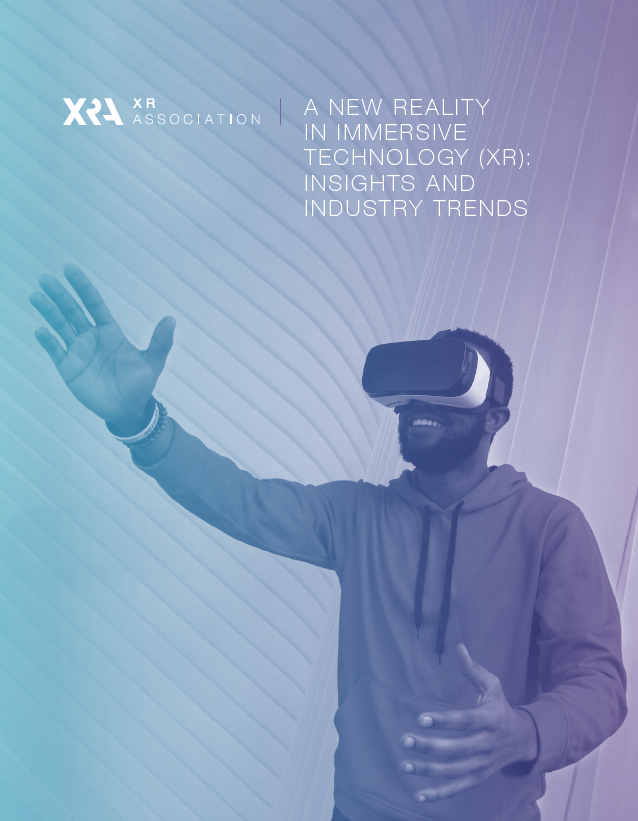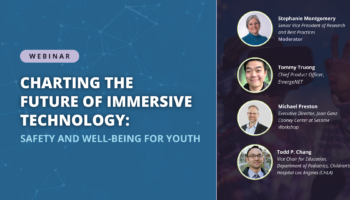FIRST ANNUAL SECTOR-SPECIFIC SURVEY DISCUSSES IMMERSIVE TECH AND THE FUTURE OF WORK
WASHINGTON, D.C. — Today, the XR Association (XRA) released the results of its first annual study titled, A New Reality in Immersive Technology (XR): Insights and Industry Trends, which seeks to benchmark the growth and adoption of XR technology among enterprise users across six key industry segments: healthcare, education, public safety, manufacturing, workforce training, and retail. As the COVID-19 pandemic accelerates the digital transformation of work, the results of this inaugural annual survey offer a first look at the role immersive technology can and will play in a post-pandemic world.
Access the Executive Summary of “A New Reality in Immersive Technology” Study
XRA Members: Access the full “A New Reality in Immersive Technology” Study PowerPoint Presentation
Results indicated that awareness of and willingness to spend on XR technology continues to increase across most sectors. Whether it’s enhancing the effectiveness of distance learning or enabling better collaboration and communication between staff, a majority of respondents recognize the value XR technology can create within their industries during the current pandemic and beyond.
“Before the pandemic, the use of XR technologies was quickly transforming how we learned, conducted business, and provided essential human services,” said Elizabeth Hyman, CEO of XRA. “Now, social distancing and its impact on work and learning have drawn heightened attention to the value of this technology as an enterprise solution. XR technology will play a key part in addressing global challenges that affect our day-to-day lives and the operations of businesses, healthcare organizations, universities, first responders, and others post pandemic.”
Additional key findings include:
- Seventy-five percent of survey respondents had heard of the term “XR technology,” indicating more individuals are familiar with the technology.
- Eighty percent of respondents in manufacturing, 75 percent in healthcare, 74 percent in education, and 70 percent in public safety predicted that their organizations will increase spending on XR technology over the next five years.
- Almost all sectors felt XR had a role to play in their recovery post-pandemic. The healthcare, education, and public safety industries stated that XR’s ability to provide immersive training and learning outcomes represented the primary way the technology could help their industry recover from the effects of COVID-19.
- Despite the excitement about XR technology, top barriers to wide scale adoption included lack of knowledge about effectively implementing the technology to their industry sector in addition to product cost.
- Over 90 percent of leaders believe the federal government should play some role in the development and adoption of XR technologies. Forty-nine percent said one way the government could help was in funding research and development.
- These insights signify further progress toward XRA’s mission of promoting the thoughtful advancement of XR technology globally. As business leaders and policymakers seek to establish a post-pandemic workforce and reenergize economic growth, understanding the tools that various industries are using to address the challenges ahead is more important than ever.
ABOUT THE XR ASSOCIATION
The XR Association (XRA) promotes the dynamic global growth of the XR industry, which includes virtual reality, augmented reality, mixed-reality, and future immersive technology. XRA is leading the way for the responsible development and adoption of XR by convening stakeholders, developing best practices and research, and advocating on behalf of our members and the greater XR industry.
Association members represent the headset and technology manufacturers across the broad XR industry, including Google, HTC Vive, Facebook and Oculus, Microsoft, and Sony Interactive Entertainment.





